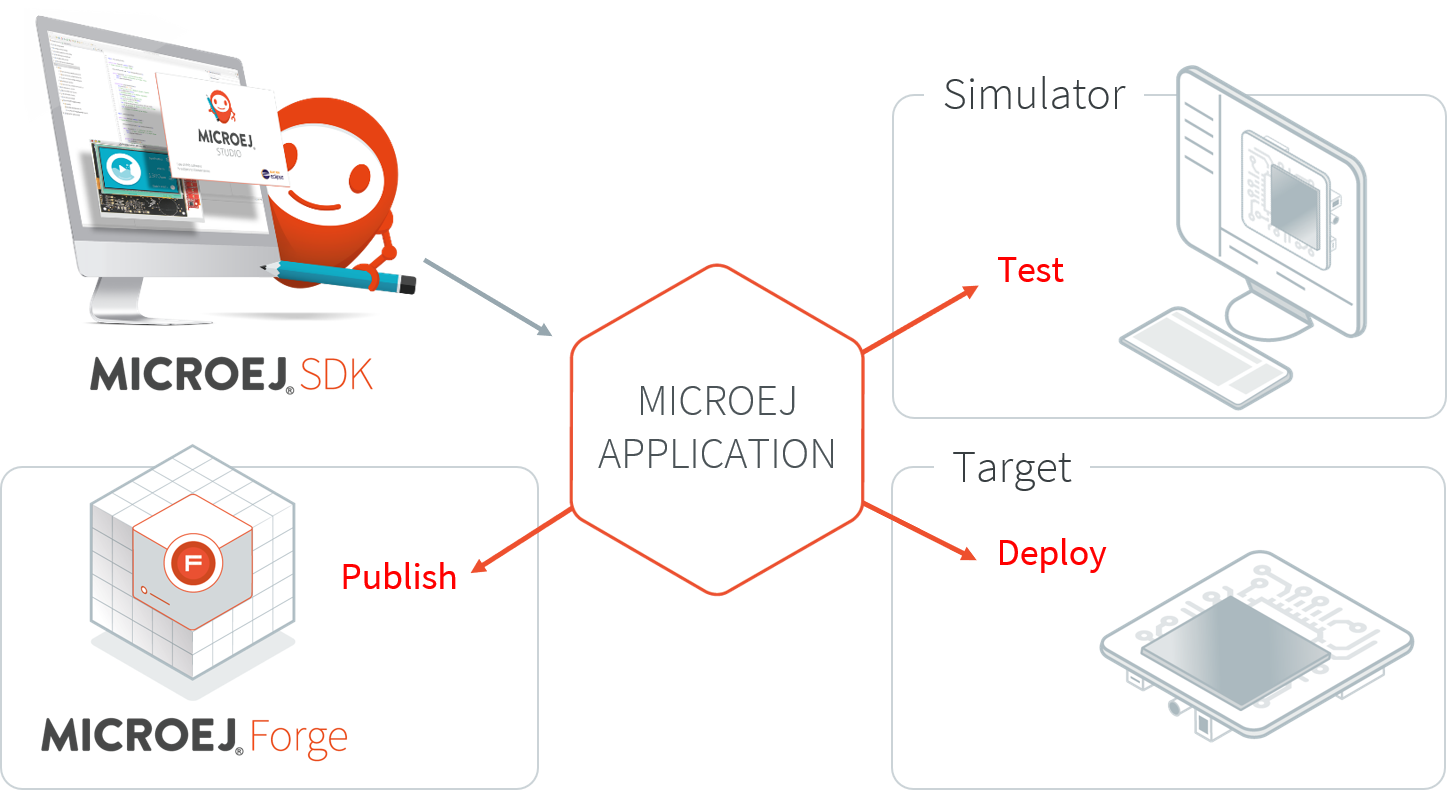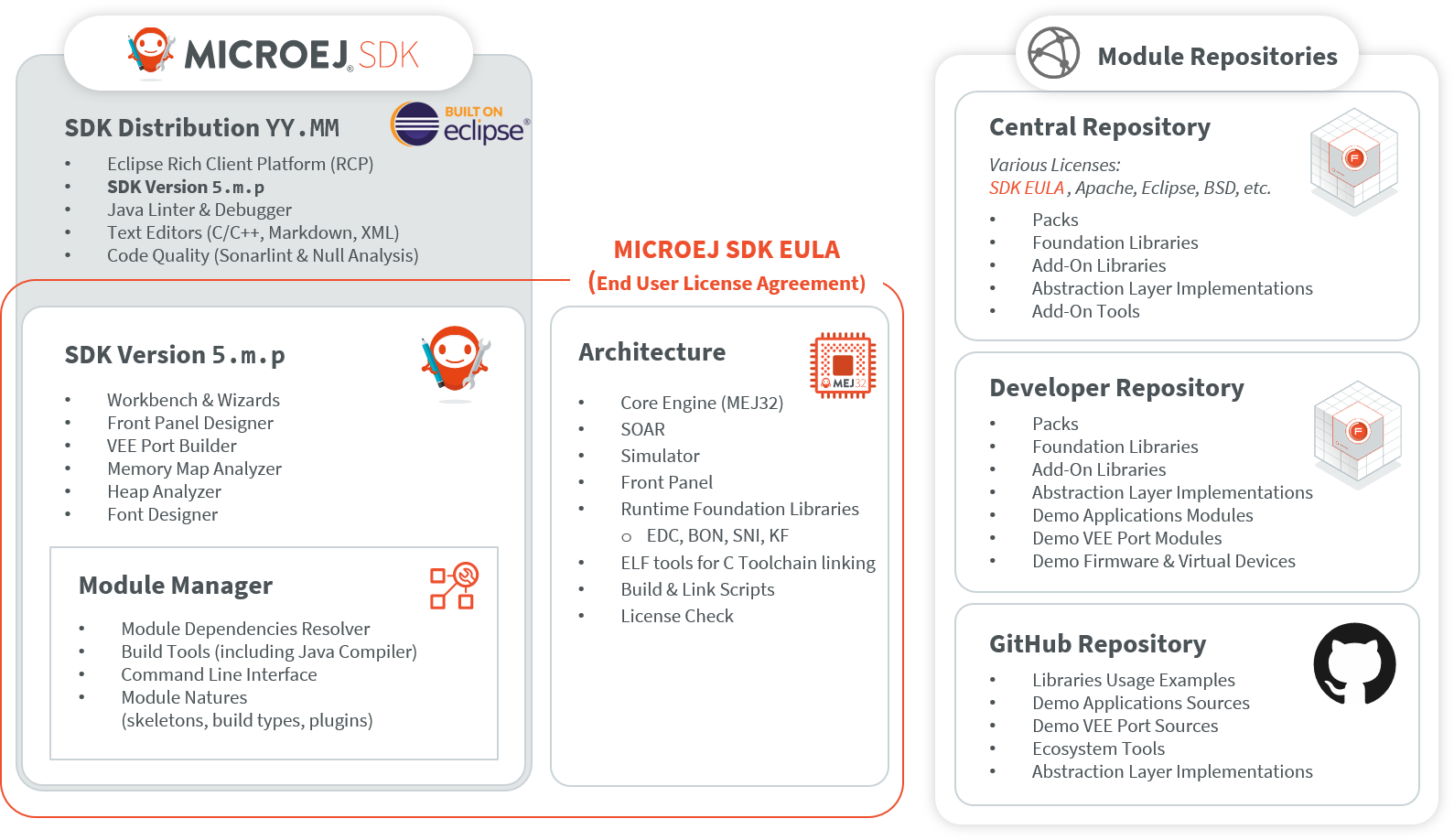Warning
This documentation is for SDK 5. The latest major version is SDK 6. SDK 5 is in maintenance mode since the release of SDK 5.8.0. Consequently, as stated in the SDK End User License Agreement (EULA), the SDK will reach the end of its life by July 2028. Contact our support team for assistance with migrating to the new SDK, or your sales representative if you require an extension of SDK maintenance as a service.
SDK 5 User Guide
MICROEJ SDK is an integrated environment to create software applications for MicroEJ-ready devices. The SDK provides tools to write applications and run them on a virtual (simulated) or real device. The capability to execute an application in a simulated environment allows to quickly test changes done in the application code and hence provides a short development feedback loop.
Since the purpose of the SDK is to develop for targeted MCU/MPU computers (IoT, wearable, etc.), it is a cross-development tool. But unlike standard low-level cross-development tools, the SDK offers unique services like hardware simulation and local deployment to the target hardware.

MicroEJ Application Development Overview
The integrated environment is composed of the following main elements:
SDK Version 5.x, an Integrated Development Environment (IDE) for writing and building Applications. It is based on Eclipse Java edition and relies on the integrated Java compiler (JDT).
It is also packaged with Eclipse to produce a SDK Distribution.
MicroEJ Module Manager, the module and build manager used to compile and package any kind of modules natures. It provides a Command Line Interface to build modules, especially used in a Continuous Integration environment. See MicroEJ Module Manager section for more details.
Architecture, the software package that includes the MEJ32 port to a target instruction set and a C compiler, SOAR, core libraries and Simulator. See MicroEJ Architecture section for more details.
The SDK allows to connect repositories hosting software modules in source and binary form. By default, it is configured with the repositories provided MicroEJ Corp.:
Central and Developer Repository, the modules repositories containing all the libraries required to develop an Application. See Module Repositories section for more details.
Github Repositories, source repositories with examples and demos. See GitHub Repositories section for more details.
The SDK is licensed under the SDK End User License Agreement (EULA). The following figure shows a detailed view of the elements.

SDK Detailed View
